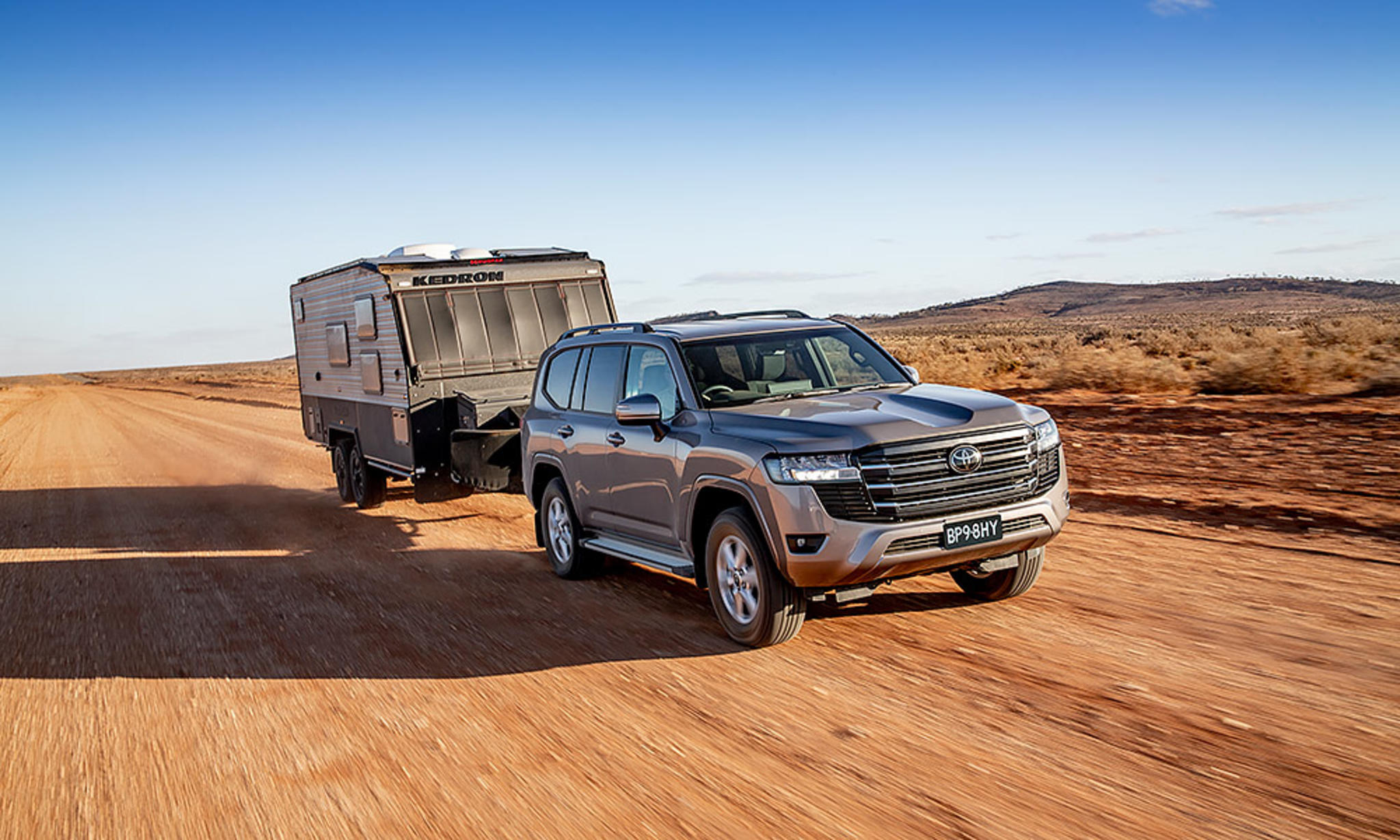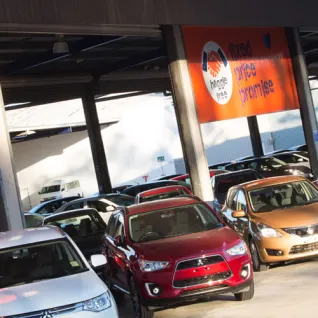
Towing Capacity Explained
Posted in Bigbox Motoring Advice
Published Wed Apr 17 2024
Towing Capacity Explained
Before buying a new caravan, trailer or boat, understanding and mastering your vehicle's capabilities is paramount for ensuring both safety and efficiency. Towing capacity isn't merely a singular figure but rather a complex interplay of various factors that dictate how much weight your vehicle can handle safely.
Let's delve deeper into the essential concepts surrounding towing capacity to equip you with the knowledge needed to make well-informed decisions. Be sure to read through to the summary for a breakdown that will help make understanding all this very clear and simple.
Unbraked vs. Braked Towing Capacity:
Unbraked towing capacity refers to the maximum weight your vehicle can tow when the trailer lacks its braking system. Conversely, braked towing capacity accounts for trailers equipped with their braking system. The presence of brakes on the trailer significantly enhances the vehicle's ability to handle heavier loads and aids in safer stopping distances.

Gross Vehicle Mass (GVM):
Gross Vehicle Mass, or GVM, encompasses the total weight a vehicle can legally carry, including its own mass, occupants, cargo, fuel, and any additional accessories. Keeping GVM in mind is crucial, as exceeding this limit can compromise the vehicle's structural integrity and safety on the road. It serves as a critical reference point when determining the vehicle's towing capacity and load-bearing capabilities.
Gross Combination Mass (GCM):
Gross Combination Mass, or GCM, represents the maximum allowable weight of the fully loaded towing vehicle and the towed subject combined. It accounts for the total mass of both the towing vehicle and the trailer/caravan/boat, including passengers, cargo, fuel, and any additional accessories. Exceeding the GCM can pose significant safety risks, including reduced braking efficiency, compromised stability, and increased wear on vehicle components.

Kerb Weight:
Kerb weight, also referred to as curb weight, represents the mass of the vehicle when not carrying a load, excluding passengers and cargo but inclusive of a full tank of fuel and operational fluids. Knowing your vehicle's kerb weight serves as the foundation for calculating its payload capacity for towing purposes. It provides a baseline against which additional loads can be measured to prevent overloading and maintain safe towing practices.
Calculating Your Vehicle's Payload:
To ascertain your vehicle's payload capacity for towing, subtract its kerb weight from its Gross Vehicle Mass. The resulting value indicates the maximum allowable weight of passengers, cargo, and any accessories while towing a boat, caravan or trailer. Exceeding this payload capacity can lead to compromised handling, diminished braking performance, and increased wear on the vehicle's components, emphasizing the importance of adhering to recommended limits.

Tow Bar Capacity:
The tow bar, or hitch, serves as the crucial link between your vehicle and the trailer being towed. It is imperative to ensure that the tow bar is rated to handle the anticipated load safely. Factors such as the type of hitch, vehicle design, and towing configuration influence the tow bar's capacity. Failing to match the tow bar's rating with the intended load can result in structural damage, detachment, or loss of control while towing.

Tow Ball Mass:
Tow Ball Mass, also known as hitch weight, refers to the downward force exerted on the tow ball by the trailer coupling. It is essential to maintain an appropriate tow ball mass to ensure stability and control while towing. Insufficient tow ball mass can lead to trailer sway, while excessive tow ball mass can overload the rear axle of the towing vehicle, affecting steering and handling.
Additional Considerations:
Beyond the fundamental aspects of towing capacity, several other factors warrant consideration for a safe towing experience:
- Trailer Sway Control: Implementing sway control mechanisms, such as sway bars or electronic stability control systems, can mitigate the risk of trailer sway, enhancing overall stability and safety during towing.
- Weight Distribution: Proper weight distribution across the trailer and towing vehicle is crucial for maintaining balance and stability on the road. Utilizing weight distribution hitches can help redistribute weight to prevent overloading the rear axle and improve towing dynamics.
- Tire Pressure and Condition: Ensuring that tires are properly inflated and in good condition is essential for safe towing. Underinflated or worn tires can compromise traction, handling, and braking performance, particularly when towing heavy loads.
- Brake System Maintenance: Regular inspection and maintenance of the vehicle's braking system, including brake pads, rotors, and hydraulic components, are essential for reliable stopping power when towing. Upgrading to a trailer brake controller can provide additional braking control and improve overall safety.
- Legal Requirements: Familiarize yourself with local towing regulations, including speed limits, licensing requirements, and maximum towing capacities, to ensure compliance and avoid potential fines or penalties.
Summary
Now that you understand all those components and why they’re important, let’s break this down to a simpler perspective.
Start by making a list of your vehicle weights. Here are a few examples of what your list could look like:
- Kerb weight: 2,330kg
- Gross vehicle mass: 2,900kg
- Maximum payload: 570kg
- Maximum ball weight: 250kg
- Maximum towing capacity: 2,500kg
- Gross combination mass: 5,290kg
Towing a caravan at your maximum towing capacity of 2,500kg leaves you with 2,790kg of your gross combination mass.
If your caravan’s ball weight is at the maximum 250kg, that leaves 320kg of your GVM or maximum payload for everybody in your car and luggage etc.
Tow vehicles of this size would be best suited to towing small caravans.
In Conclusion,
Fully understanding towing capacity involves comprehensive knowledge of various factors. By considering all the factors, you can confidently navigate the complexities of towing while prioritizing safety and efficiency on the road. Always consult your vehicle's owner's manual and seek professional guidance when necessary to optimize your towing experience.

Choose.Buy.Enjoy
A better way to buy and sell used cars.





